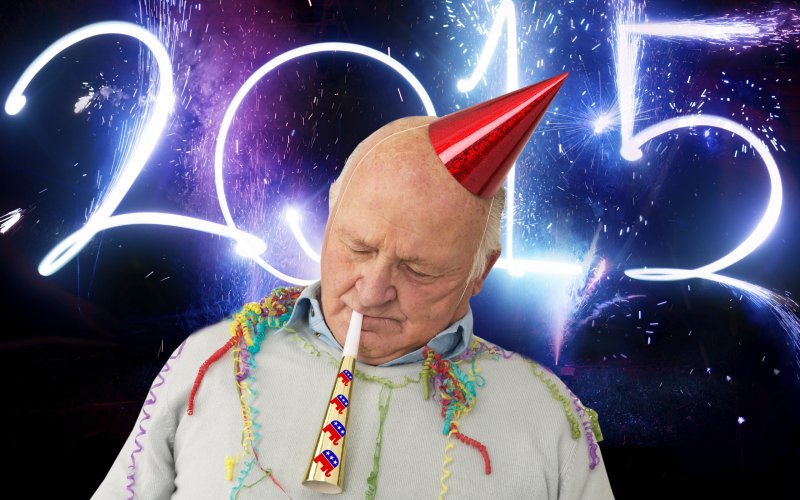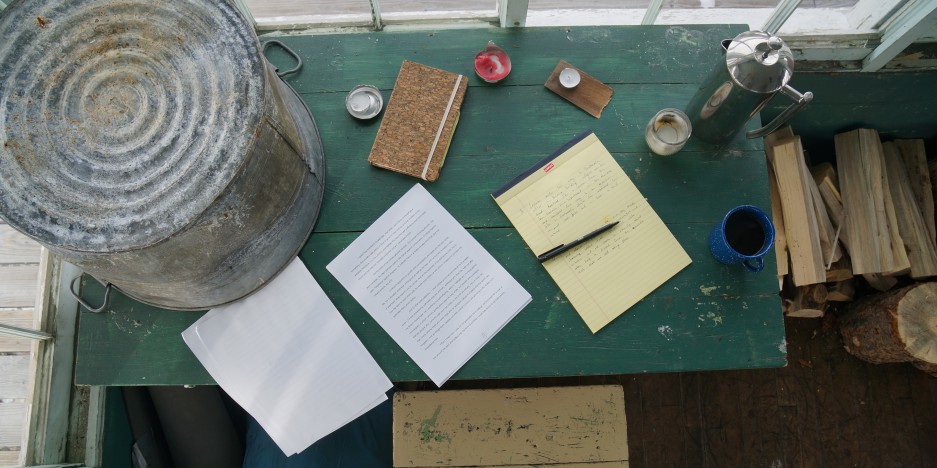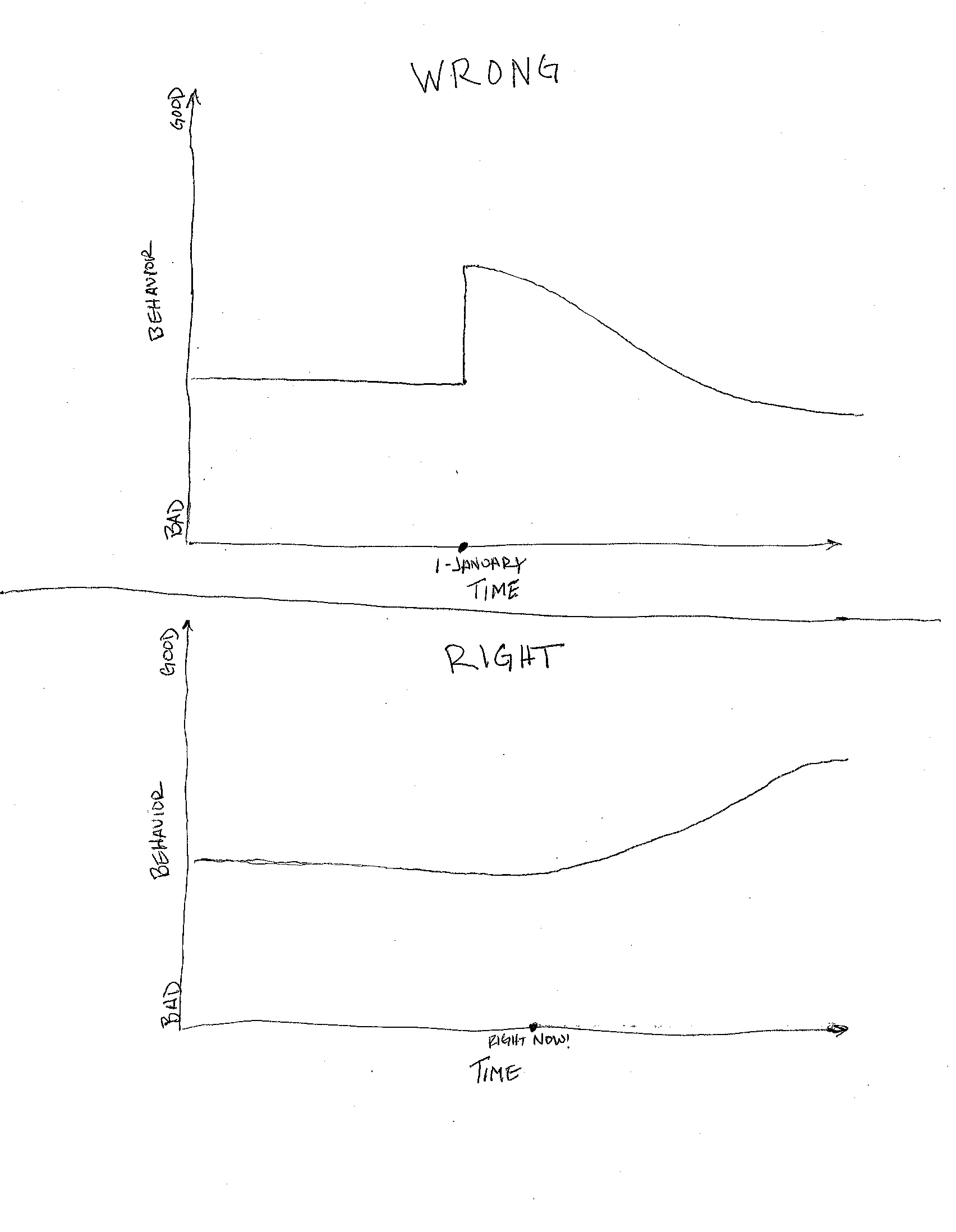It’s still January, and so while perhaps out of vogue I think it’s still topical to talk about what I like to think of as one of our dumbest traditions. That New Year’s Eve is the shittiest holiday is well documented; it needs no further treatment here. I take offense instead at the annual pandemic of delusion that some folks like to call New Year’s Resolutions.

Scott Fitzgerald gave us that “there are no second acts in American lives,” which, is pretty much what you’d expect to hear from a guy who spent his 20’s penning one of the finest examples of the English language and then drinking himself to death by 44. I certainly disagree with him, and don’t mean, by regarding New Year’s resolutions as the dumbest non-televised part of American culture, to disparage the notion that self improvement is possible or worthwhile. Instead I would look to Annie Dillard, who points out (what may be a tautology, engineers?) “that how we spend our days is, of course, how we spend our lives.”
I think that my distaste for the tradition can be summed up pretty fairly by an anecdote.
A guy I know was a smoker, and for reasons that will soon become clear I suspect that he still is. We worked together at a place that was sometimes emotionally trying, and I think that the habit started innocently as an excuse to sneak out into the quiet every hour or so. (I never picked up smoking, but did develop my own coping mechanism in which I would see how many dirty sounding but technically correct words I could sneak into official documents.) He insisted that he never smoked at home, and checked “non-smoker” on his health insurance. I think that he actually believed that he wasn’t addicted to cigarettes.
But some time in mid-December, he mentioned that he really aught to quit before it did become a habit, and let me know that his New Year’s Resolution would be to give up the cancer sticks once and for all.
“Why?” I asked him.
“Um, because they’re bad for you? And my wife would kill me if she knew.”
“Nono, why is that a New Year’s Resolution? Why not just quit now? Today? This afternoon. Here give me that pack. I’ll flush ’em.”
He recoiled and held that crumpled foil pack of Camel 1000s (or whatever) a little more dearly, and went on to explain that New Year’s Day (still weeks away) would be just fine, thank you very much.
New Year’s came and went, and well before MLK day, the guy was back out there sucking away, every hour on the hour, while I was inside still massaging correspondences to attorneys to make space for words like intercourse and ejaculate.
The point here, is that by focusing on the New Year or the ceremony of the Resolution, it takes focus away from the act, or series of acts, that form behavior. It’s a disturbance, a blip. And after a few days or weeks or even a month of adherence, once the day and the ceremony have passed, the behavior reverts to where it was. I drew a graph to help out:
We should instead think of resolutions as inflection points in behavior, that are in no way required to ring in a new year and are certainly permissible on any of the other 364 days.
It’s easy (especially as a non-smoker) to look at my smoker friend and scoff, but if we’re honest with ourselves we all do the same thing. New Year’s Day being a few weeks away is not the only excuse to put put off addressing bad habits.
How often have you decided to cut back on eating out, as soon as you go to the grocery store and stock up? To start keeping a journal as soon as you get a few of the nice pens? Or to start exercising again tomorrow, because it’s already late and you just made dinner? Sure, maybe you went for a run today, but did you do all those stupid little exercises your PT prescribed?
Changing habitual behavior isn’t impossible, but it is hard work. Why not start right now?
Like




